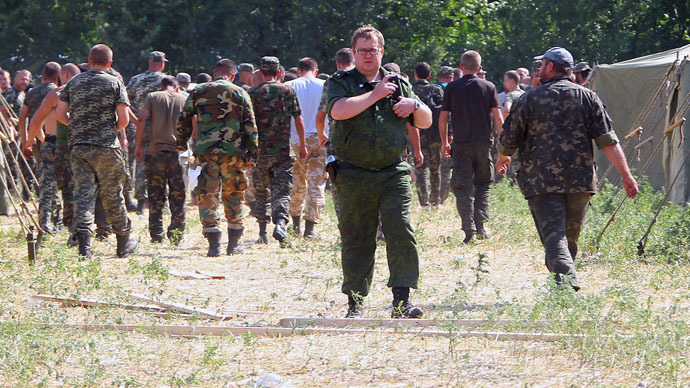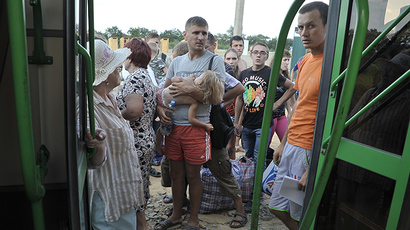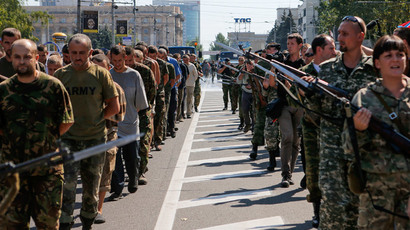Nationalist MP suggests community work for foreign military fleeing to Russia

A Russian lawmaker has prepared a bill which would make foreign military servicemen who arrive in Russia fleeing combat to do community service for up to a month. The MP says that it is aimed primarily at Ukrainian soldiers and officers.
Mikhail Degtyaryov of the populist nationalist party LDPR told the Izvestia daily that his bill would force all foreign military personnel who find themselves on Russian territory in the course of combat in border regions to do one month community service. Refusal would be punished with a fine of 300,000 rubles (about $7900) or 15 days of administrative arrest.
The bill says the decision on what work would take into consideration the servicemen’s age, health and professional abilities.
Degtyaryov did not specify the nationality of the foreign military but in press comments made it clear that the idea was inspired by recent events on the Russian-Ukrainian border.
“They could build refugee camps, fortify the Russian-Ukrainian border, or repair the homes on Russian territory that had been destroyed by cross-border shelling. Such servicemen are not very numerous, but I think it would be right that these healthy men do a little work before they receive refugee status or go back home,” the MP told reporters.
Over 500 soldiers and officers belonging to the Ukrainian military have crossed the Russian border to seek refuge in the course of the conflict that is taking place in the Eastern and South-Eastern regions of Ukraine. In the latest incident 62 people asked Russian border guards for refuge and received the permission to cross on August 27.
Russian authorities have offered all the servicemen an opportunity to stay in Russia, as there is a visa-free regime with Ukraine, or to return home.
In mid-august Russian Foreign Minister Sergey Lavrov said the number of Ukrainian refugees in Russia was nearing 1 million. Earlier the UN reported the figure at 730,000.
Russian officials and human rights activists have repeatedly called for steps to make the life of Ukrainian refugees easier, and the Federal Migration Service has already introduced some measures.
At the end of July, the head of Russia’s Federal Migration Service, Konstantin Romodanovskiy, said Ukrainian citizens would be allowed to prolong their 90-day visa free stay by another 180 days, adding that they also will not be punished for minor violations of migration rules.
In June the head of the presidential administration, Sergey Ivanov visited a refugee camp in the Rostov Region and suggested giving Russian citizenship to people born on Russian soil; the current law only automatically grants citizenship to children of Russian parents.














